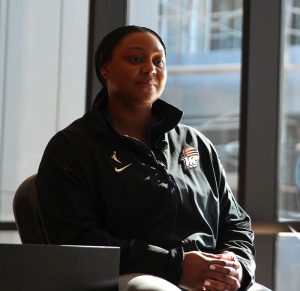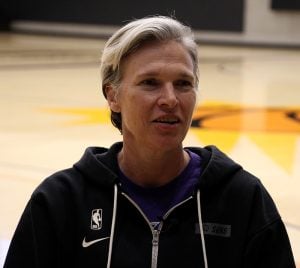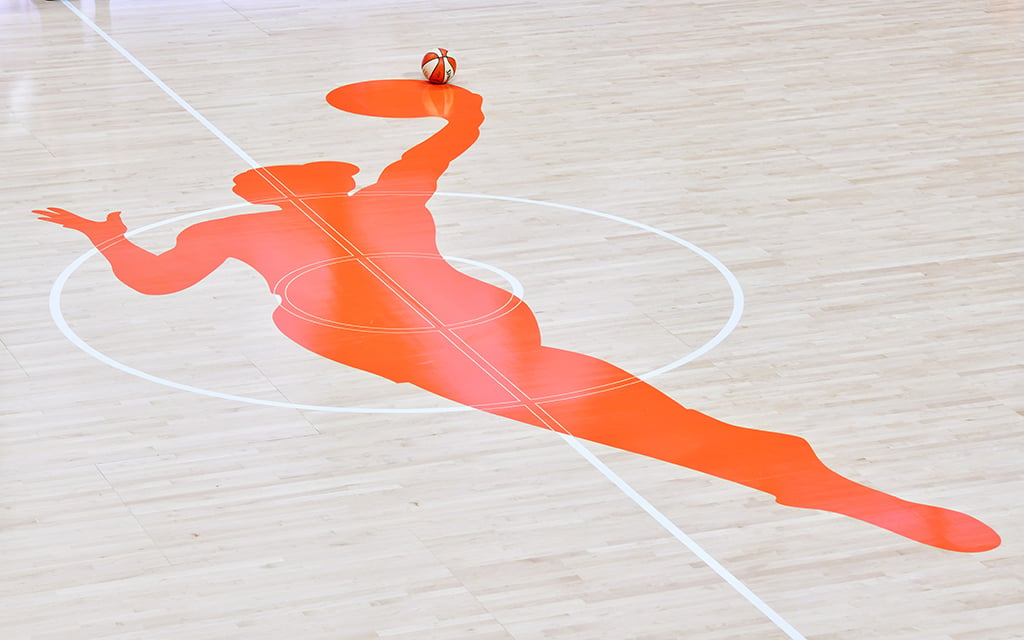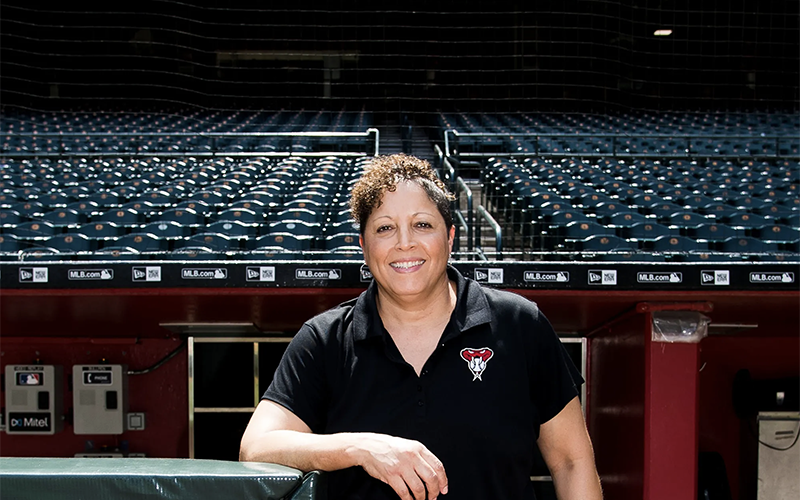PHOENIX – Some say numbers never lie, and the latest measures of the WNBA’s efforts to increase diversity, equity and inclusion tell an honest truth about the league’s current standing.
Compared to major American sports leagues, the WNBA ranks far ahead in gender and race hiring overall with a combined grade of an A with 93.2 points, according to The Institute for Diversity and Ethics in Sport (TIDES) 2022 report. The high score marks the 18th consecutive year the league received at least an A for its overall race, gender and combined grades, the report states. However, the league backtracks to resemble the NBA, NFL and MLB in upper management hires entering the 2023 season, which tips off Friday with a four-game slate.
While people of color make up 50% of head coaches in the WNBA, and women account for 58.3% of head coaching positions, the executive ranks leave much to be desired. In 2022, the league had only two Black women in the role of team president, TIDES reported. The decrease came after clear signs of progress in 2015 and 2018, when four Black women held the top position.
For a league that consistently promotes diversity, equity and inclusion, this is still a cause for concern. However, Phoenix Mercury assistant general manager Monica Wright Rogers believes despite the current percentage – 16.7% of team presidents are people of color – the lower number isn’t worrisome.

The Phoenix Mercury recently hired Monica Wright Rogers as the team’s assistant general manager, a newly-created role in the organization. (Photo by John Cascella/Cronkite News)
“I think sometimes teams and diversity goes through ebbs and flows. So as you know, like, numbers were high and then a couple years later, they’ll be low. I think that’s just the natural order of how things go,” Wright Rogers said. “Sometimes, when you do have a bigger hire, a more notorious hire, that prompts other people to want to go after those types of positions.”
In 2021, the Las Vegas Aces had a prominent hire of their own, bringing in former LSU women’s basketball coach Nikki Fargas as the Aces team president. Fargas, who is Black, brought a background of coaching experience, as well as empathy for her players.
Aces owner Mark Davis noticed Fargas on his radar and prioritized hiring her to the front office by selling her on his mission to change the look of his organization and the league.
“I was just really blown away with the vision of Mark Davis and what he wanted to do for not just the Las Vegas Aces, but for the WNBA,” Fargas said. “How he really wanted to expand and empower and place women in leadership roles. He was very intentional in saying that he would love to have his organization run by women.”
Fargas highlighted the strong relationship she has with Aces general manager Natalie Williams through their roles in the front office and explained how other organizations can model Las Vegas.
“There is a pool of us that are out there, you just have to take the initiative and say, ‘I’m going to look thoroughly through this pool of candidates. And I’m going to interview them, and I’m going to talk to them, and I’m going to see if they could run my franchise or manage my franchise.’ And if so, then move forward in the process,” Fargas said.
Mercury coach Vanessa Nygaard, who worked under Fargas during her time as an assistant coach for the Aces, says the cup is “half full” regarding diversity efforts within the WNBA. The statistics in the highest ranks don’t overshadow the strides made since the league was founded in 1996.
“Welcome to Earth, welcome to America. I think that the WNBA does a great job and has grown so much in that area, as well as many other leagues, including the NBA has placed a focus on that. Until we place focus on that. It’s not going to change,” Nygaard said. “So I see, a cup half full and that there’s a great growth opportunity here.”
Nygaard cherishes her time with the Aces and the relationship formed with Fargas, whose previous positions blended seamlessly into her role as team president.
“Nikki was great. She came in the same year I was there and was always very supportive, had an extra touch with experience being a college coach and that role of mentorship,” Nygaard said. “I know she takes that seriously even into her new position and I just got to see her at the Final Four. I’m just really happy for her in that role. She does a fantastic job for them and she’s a WNBA champion.”
Fargas believes the hiring process starts with intentionality, and even stated an anecdote about how Davis actively searched for a team president and general manager that mirrored the WNBA’s players.
“I think if more of those who are in power take the time to really dive into where is and where are the Nikki Fargas’s or the Sandra Douglass Morgan’s, or the Cynthia Marshall’s of the Dallas Mavericks, then I think you will have a pool to choose from,” Fargas said. “But if you’re never really looking to do that in the first place, you’re never going to think to go there anyway. So I think it starts with the mentality to say I’m going to go and really search for this person.”
Since the hire of Fargas, the Aces have made the playoffs in her first two years and enter this season as the reigning champions after beating the Connecticut Sun. She recognizes that the hiring process isn’t just about hiring someone based on their gender or skin color, but rather a candidate who can get the job done.

The Phoenix Mercury’s Vanessa Nygaard was one of seven women head coaches at the end of the 2022 season, an increase from five in 2021. (Photo by Robert Crompton/Cronkite News)
“I don’t think you just give somebody a job based on their gender or the color of their skin. I’m saying, you give that person, a woman, a woman of color, the opportunity and give them access to show you that they’re capable of doing the job,” Fargas said. “And in some instances, doing it better than what you may have, previously, or may have thought.”
When Nygaard secured her job as a coach of the Mercury, she remembered her journey and the challenges along the way. As a result, the second-year head coach hopes to use her influence to create more opportunities and ease the path in coaching for women.
“I know when I was given this position, (hiring women) was important to me. I was now in a position where I get to hire people and it was important for me as a person in that position, that I hire other women and give opportunities to people who maybe didn’t get opportunity,” Nygaard said. “So I’m very conscious of that and I think we have a lot of people in our league and our organizations that keep a focus on that.”
That focus will only help guide the ship for people like Wright Rogers to be hired, along with the support of the league as a whole.
“I think it starts with how outspoken the players have been over the past several years about what they believe to be issues of priority. I think that sets the tone, and then the league supporting them, the team supporting the players on the issues that they are passionate about,” Wright Rogers said. “I think that really should set the tone for every league, every other league.
“So I don’t think that the narrative needs to be changed. If anything, it should just continue to be supported and enhanced and cultivated.”




